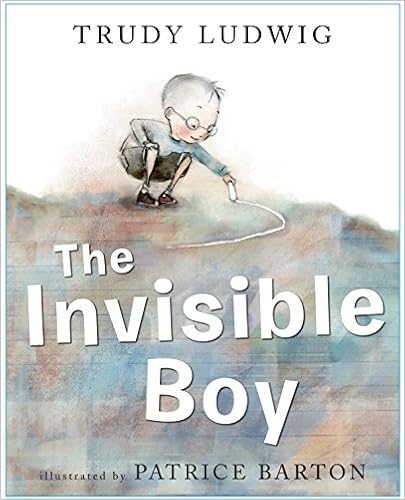Top 9+ Children’s Books To Teach Moral Lessons and Values To Kids (2023)
As a parent, you know there is a constant struggle to teach your little one a few values. From love and friendship to tolerance and self esteem, this is an ongoing process that starts at a young age and goes through the teenage years as well. It involves education and personal development, but it also requires viable examples for kids to learn. Fortunately, there are a few ways to help yourself in the process.
What Are The Most Important Values and Moral Lessons for Kids?
Teaching values and moral lessons to kids is essential for their development into responsible, empathetic, and compassionate individuals.
- Honesty
- Respect
- Empathy
- Love
- Responsibility
- Friendship
- Gratitude
- Generosity
- Perseverance
- Fairness
- Cooperation
- Forgiveness
- Tolerance
- Self-esteem
Education may come in multiple forms. A few words can help, but the power of example is more appropriate.
The best way to teach these moral lessons is by setting a good example yourself, as children often learn by observing the actions and behaviors of their parents or caregivers.
While some situations are less likely to occur on a daily basis, make sure you give your kid some good recommendations in terms of reading and it will certainly help out.
Here are some of the best children's books to teach values and moral lessons to kids.
What Are The Best Children's Books with Moral Lessons to Teach Values?

Inside the Pencil Box, by Avni Saxena
In this creative children's chapter book, Inside the Pencil Box reveals a magical world where pencils, erasers, and other school supplies come to life as lively characters in the Pencil and Eraser Kingdoms. When an unflattering newspaper article sparks a rivalry between Lady Pencil and the erasers, chaos ensues and disrupts Emma's school day. The story emphasizes the importance of overcoming differences and working together, as Emma needs the pencils and erasers to cooperate in order to restore order.
Ideal for children aged 5-9, this illustrated book is perfect for readers who love imaginative ideas and colorful worldbuilding. It serves as a metaphor for overcoming prejudice and differences, teaching young readers the value of teamwork and cooperation. Suitable for various reading levels, from kindergarteners to 4th graders, the story is perfect as a bedtime story or a read-along classroom book.
The delightful tale of Inside the Pencil Box introduces children to a vibrant cast of characters and the valuable lessons they learn about unity and friendship.

Big Thoughts For Little Thinkers, by Daniel Thompson
This book may seem a bit complicated at first, but it is crystal clear and straightforward. More importantly, it will help your child develop brain by promoting critical thinking. It might be the optimal way to sow some seeds of philosophical principles. From self esteem and respect to love, friendship and success, this book underlines a series of values that kids need in today's society.
Furthermore, the book will stimulate your little one and push them forward. Get ready to face some questions – some of them may feel a bit uncomfortable. But then, the book will stimulate clever conversations between children and parents. It will trigger their curiosity to know more and become better people. It will help them turn into more responsible teenagers and adults.

Did I Ever Tell You How Lucky You Are?, by Dr. Seuss
This book brings in the classic optimism and good vibes associated with Dr. Seuss. It is suitable for children ready to venture in today's society, whether they are getting ready for school or just a new year. It helps kids who feel down sometimes, regardless of the reasons – when things seem to go bad, this book will provide answers to all of their questions in a fun and exciting manner.
Dr. Seuss is known for the optimistic approach and this book comes with the unique rhymes and illustrations you might be familiar with. It will help readers of all ages go over small dumps in their lives. But on a different note, the primary goal is to teach your little one what gratitude means. No matter how annoyed your kid is with certain things, this book will help them realize how lucky they really are.

It Could Always Be Worse, by Margot Zemach
Margot Zemach's masterpiece is a classic. The book aims to teach kids what gratitude means in a fun and exciting way – practically, your kid will follow an interesting story. A man lived with his wife, six children and mother in one hut. There was only one room, so there was obviously a lot of tension – fights all the time, small issues and so on. But things changed one day, when the man ran to his rabbi for help.
Things were going from bad to worse and the man felt like he could no longer take it. His rabbi's advice was quite unlikely though. As a direct consequence, the man's life went even worse – one catastrophe after another in a disastrous environment. Teachings occur towards the end of the book, which is quite funny and lovely through the friendly words and full color illustrations.

The Giving Tree, by Shel Silverstein
The Giving Tree will trigger the sense of compassion and giving in children. It is a book of incredible perception – not just written in a beautiful way, but also illustrated to entice young readers. The story follows a boy who discovers the rewarding feeling of giving. Unfortunately, he discovers it a bit too late. The story might be a bit sad at times, but it will certainly trigger some feelings in your little one.
The Giving Tree is definitely a classic. It changed lives half a century ago and it will change lives today too. It has always managed to offer a touching idea of the gift of giving. At the same time, it reveals the feelings associated with this gesture on both sides. No matter what one might give, they will receive love and appreciation in exchange – what could be better than that?

Elmer, by David McKee
This book makes a pretty solid statement once your kid will be done reading it – embrace what makes you stand out in the crowd and never be worried about being yourself. This book could help children of all ages, regardless of the problems they face or the particularities they try to hide in order to fit in. Obviously, their conflicts could be a bit limited, but at the end of the day, everyone faces such internal issues, regardless of the age.
The book follows Elmer's story. Elmer has a colorful patchwork body. While every other elephant in the herd is gray, he stands out. Everyone makes fun of him. After a few failed attempts to blend in, he realizes that his colors make him unique. With time, he is accepted by others, but he also pushed them to embrace their particularities and unique features.

I Love You To The Moon & Back, by Amelia Hepworth
As a parent, you will always be in a conflict with your little one. No matter how well things are going, there will always be occasional fights and issues. Kids do not always have the power to understand that you want the best for them. This book teaches them a valuable lesson – never underestimate the love of your parents, no matter what happens or how you feel about certain situations.
The book might feel better for young children or toddlers, but it is also suitable for older kids. The story is relatively short, but sweet and covered in pictures. It tells the reader about a mother bear and the cub. They spend a whole day together playing games, only for the mother to make the statement about love. This declaration does a great job at explaining children how much their parents love them.

The Huge Bag Of Worries, by Virginia Ironside
This is one of the best books to help children communicate and share their issues with their parents or perhaps their best friends. The lesson here is fairly simple to understand – a problem shared is a problem half solved. The point is to find someone who is willing to listen. All in all, this book follows Jenny's story. The little girl finds a blue bag by her bed and the bag keeps following her around.
It is a bag of worries and no matter where Jenny goes, the bag is right behind her. Those little demons are next to her all the time, whether she is in school, relaxing at home, watching TV or studying. She feels like she has to keep the bag private, so she does not tell anyone about it. But meanwhile, the bag keeps getting bigger. A nice lady walks by one day and empties the bag while encouraging Jenny to discuss each of them. At the end of the day, they no longer seem so bad, now that they are shared.

The Invisible Boy, by Trudy Ludwig
This book will teach your little one what empathy means. It is a valuable lesson in life – do not let people feel invisible, no matter what you feel about them. The story is heartbreaking and will certainly stir some feelings in your kid. It follows Brian's story, a boy who is constantly ignored in school – even by his teachers. He feels sad and invisible until one day, when Justin pops up.
Justin is a new kid in school and the first person to notice Brian. The two become good friends. Brian gains some exposure and feels better as people start to notice him. Whether it comes to school or a different environment, empathy is extremely important and children confronting loneliness will find better ways to cope with it.

The Little Prince, by Antoine De Saint-Exupery
The Little Prince is a classic and follows a friendly character as he explores the galaxy. He pops from one planet to another, meets interesting characters and reflects over the actions affecting his life. The story is calm and amusing. The prince finds love in a rose. He cares for the love and discovers the things that fuel a healthy relationship. Frank lessons make the book even better.
Initially, lessons may take a couple of reads to reveal themselves. But as you go through this book with your little one, they will learn to judge others by their actions, rather than their words. Your kid will also understand the importance of healthy relationships.
Conclusion
In the end, these are some of the best children’s books to teach values to kids (self-esteem, tolerance, love, friendship). Some of them are classic, while others are relatively new – chances are they will trigger certain feelings in your little one and teach them a thing or two about life.
Check out also our favorite children's adventure books!

I am a marketing manager with 5 years of experience. I am passionate about helping businesses grow and reach their target audiences. I was born in Iowa and my hobbies include reading self-help and women's fiction, especially rom-com. In my free time, I enjoy reading, spending time with my family and friends, and traveling (hopefully one day to Italy).







